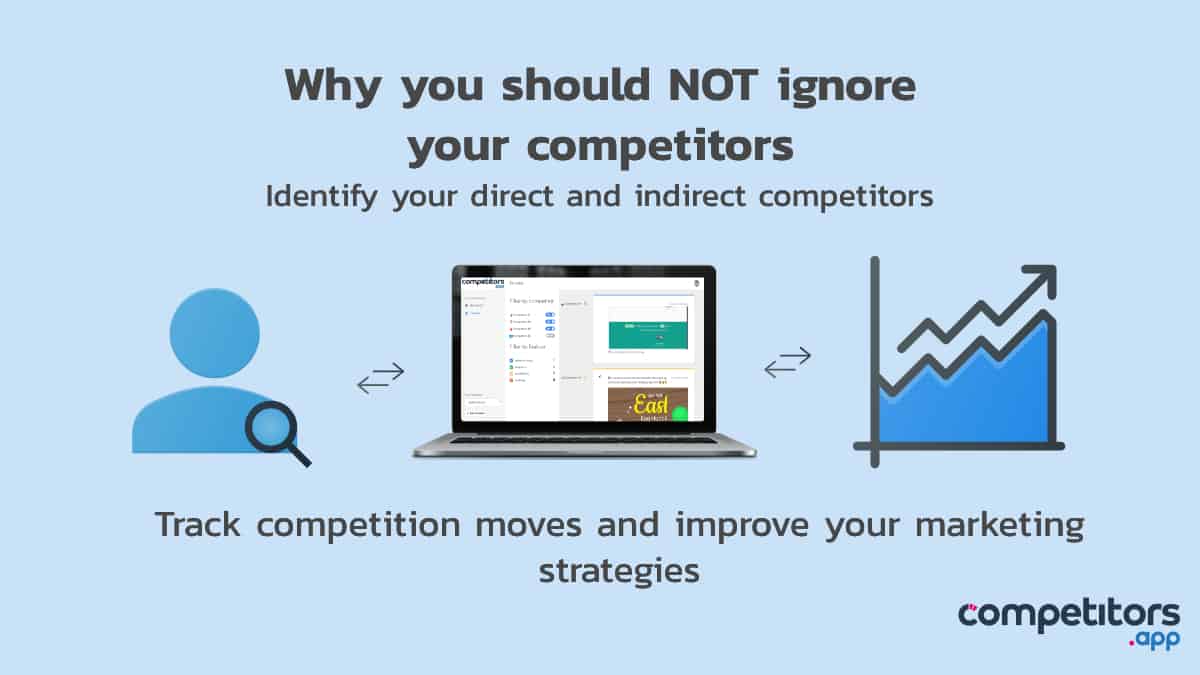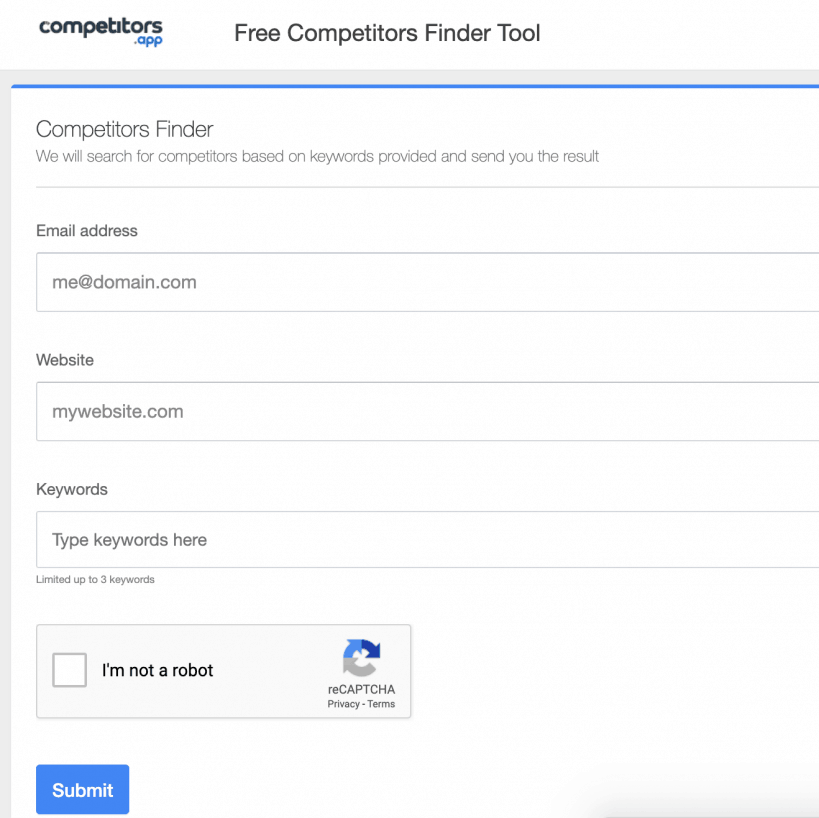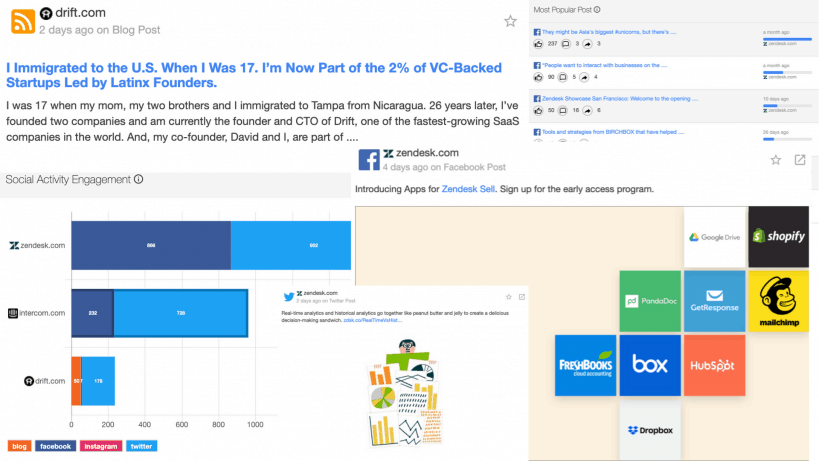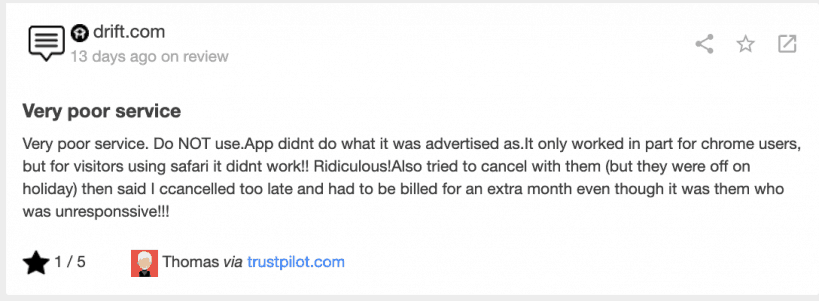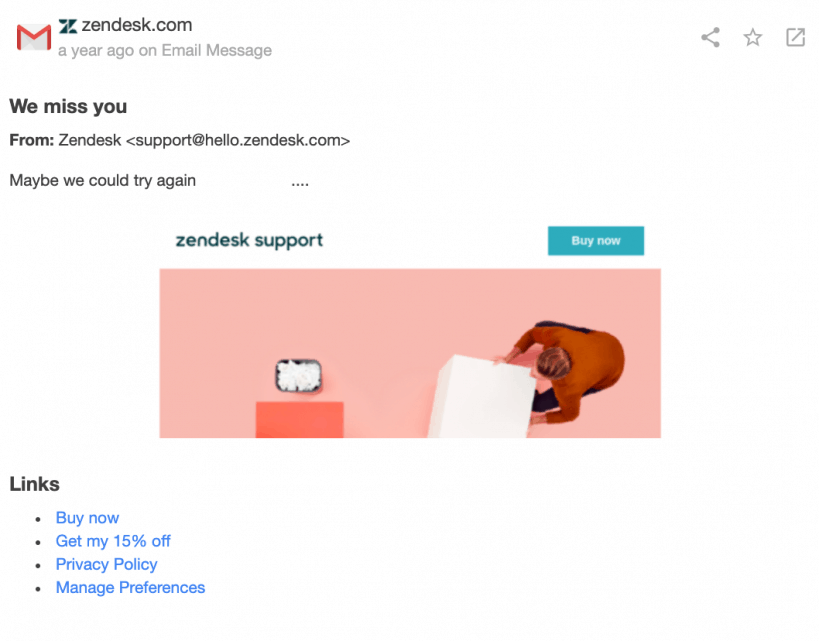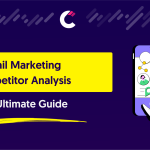To ignore or not to ignore your competitors?
That’s the big question that can change the whole game, especially in business. Investigating what your competitors are doing or not, figuring out what they plan, what will be their next move, and analyzing their strategies could give you valuable insights to use for your good.
Of course, researching behind competitors’ moves can be a struggle and a waste of time. Watching all your competitors’ channels can take hours, plus there are tons of different things to look at (Website, Social Media channels, Emails, Keywords, Reviews and more) and you might think that it’s quite impossible to gather all this data in a single place, right?
Don’t worry, monitoring tools and software can make things easier for you, so you’ll be able to track automatically all your competitors’ marketing activities with very little time investment and almost no effort. That means you have no excuse to start monitoring your competitors you need to know who you’re up against, right?
How to identify your competitors?
Don’t want to make it sound like a cliché, but let’s make it clear from the beginning: you DO have competitors, and competition exists in every single field and domain, no matter the business. The question is: when it comes to your brand, who are you considering?
Correctly identifying your competitors can be a challenge, especially if you did not discover them from an initial phase of your business. Still, it shouldn’t be a hard task to spot them if you follow simple steps.
Defining your relevant competitors, it’s the first objective in your competitive research. To identity competitions that count for your business, you should start by understanding which types of competitors you should include in your investigation:
What are the two main types of competitors?
Direct competitors
A direct competitor is the one who offers the same product/service as you do, the one that suddenly pops up in our mind when you think of “competition.” Also, it’s the one that comes in your customers mind before choosing to make a purchase or converting to your service, the one that is targeting the same audience as you, with the same goal of profit – so ignoring him might not be a good idea, if you care about your business’ future. 🙂
Burger King and McDonald’s are direct competitors. Intercom and Zendesk are direct competitors, and so are Nike and Adidas – brands offering similar services and products.
To identify your direct competitors, you have to take a closer look around your business environment and to stay relevant by knowing your business-level and your position on the market.
To stay relevant and pick those competitors that count, you’ll need to have a clear overview of your business, products/services, and marketing strategies so that you can compare it with your direct competitors. Understanding “who you are?” will help you to discover “who your competitors are?”.
2. Indirect competitors
Call “Indirect competitors” those businesses that don’t necessarily sell similar or related products, but target the same group of customers as you do, to satisfy the same need. Nearly every business has indirect competition, so try to keep your eyes on those too, even if your focus is mainly on your direct ones.
Your indirect competitors may not have similar products or services, but they are direct competition with your business digitally. They may focus on the same marketing strategies, deliver the same type of content as you, competing for the same keywords, and wanting the same things as you, which is your customer’s/user’s attention.
Domino’s Pizza is an indirect competitor for Burger King – a hamburger fast food restaurant and a fast-food pizza restaurant – two companies that make slightly different products but target the same customers (hungry people).
Your competitors’ actions, whether direct or indirect competitors, can affect your business’ success, so it’s essential to take into account both types of competition when planning your business or your marketing strategies.
Moving forward, let’s see some ways to start our competitive research and how to start searching for competitors:
How do I find my key competitors?
Market Research
Take a closer look at your industry and product’s market, and analyze which other brands are offering a service or product that would compete with yours. I advise you to can start your competitive research at a local level, and once you’ve discovered which key competitors are around you, search for your national competition.
Also, take into account that there may be a business in another country that offers the most similar product to your own. Even if you don’t feel “attacked” by their presence, it’s better to know that they exist so that you can be aware of their marketing efforts.
Search on Google for your product/service, add your location to be more precise, and write down the results.
If you decide to use a competitive intelligence tool, on Competitors App you can automatically find your competitors’ based on your brands’ keywords. Once you add your details, domain, and keywords, you’ll receive a list of competitors.
Ask Customers Feedback
Your customers can help you to get straight to your key competitors. Once they’re on your side (they decided to subscribe, or they’ve bought your product), you can ask them which other brands/products they were evaluating before taking the final decision.
Leads can also bring you valuable information regarding your direct competitors. During the sale process, ask your potential user/customer which options they are taking into account or send a survey to find out more information. Try to understand customers’ logic behind choosing your product or service in one situation and competitors’ in another.
Check Social Media groups, Community Forums
Nowadays, people tend to seek out advice and recommendations online, on Social Media groups, community forums like Reddit, Quora, Slack groups. Join relevant groups for your industry and keep an eye on the conversations to find out your potential customers preferences, what are people’s options when it comes to choosing a service/product as yours and what influences on their buying decisions. Gather insights and take action!
After you have identified your competitors and made a list of your key competitors (the ones that are relevant for your business), you can start creating a competitor analysis plan or better say … start digging into your competitors’ businesses. You must keep an eye on their products, marketing strategies, sales efforts to stay competitive in your industry.
As mentioned before, you can start monitoring your competitors’ activities using a monitoring tool, so you’ll automatically gather competitors’ data and get notified each time when a competitor makes a move. Here’s a detailed article on how to conduct a competitive analysis effectively.
Why is it important to know who your competitors are?
Researching your competition its, for sure, an excellent idea, especially when it’s done automatically, with a monitoring tool. You’ll get valuable details on your competitors’ actions without wasting time and resources. Still, you’re asking yourself if investigating your competitors should be a priority for you?
Here are the top four reasons why you should identify your competitors and start tracking their moves:
Why should you NOT ignore your competitors?
Competitors help you to develop your content strategies
Monitoring your competitors’ content will give you insights on what you should post on your channels. Track your competitors’ Social Media channels; see what type of content are they sharing, how often, and what feedback are they receiving from the audience.
By analyzing how the public interacts with your competition’s content and marketing efforts, you can understand what you can do differently to improve your content strategies.
2. Competitors help you to spot new market opportunities
Identifying your competitors can open your eyes to new consumer demands and preferences. Also, finding out what people think about your competitors’ products or services will give you valuable hints on what you can improve to overcome your competition and to attract the attention of unsatisfied clients/users.
3. Competitors help you to deliver an outstanding customer experience
See how competitors are treating their customers/users and pay attention to each detail that can make a difference between your business and your competitors’ brands.
Are your competitors sending promotions and offers frequently? Are they friendly with their users? What’s the users’ experience on competitors’ websites?
4. Competitors help you to differentiate and develop your brand
By identifying your competitors, tracking, and analyzing their moves, you can grow your business and strategically position your products & services in the marketplace. The simple fact of being aware of what your competitors are doing and what strategies are crafting can give you clear directions on how to differentiate yourself from them and how to transform your business into a profitable one.
Identifying your competitors and investigating their actions, what they do/don’t, and how they build their brands can help you to make your services and strategies stand out. Gathering competitors’ data will help you to improve your business performance and to position your service/product on the market strategically. So the questions are: To ignore or not to ignore your competitors? I’m sure by now you have an answer. 🙂
Stay up to date with your competitors’ marketing activities and gather valuable insights on how you can improve your strategies. Sign in for a free trial period on Competitors App and start tracking your competitors’ moves.
